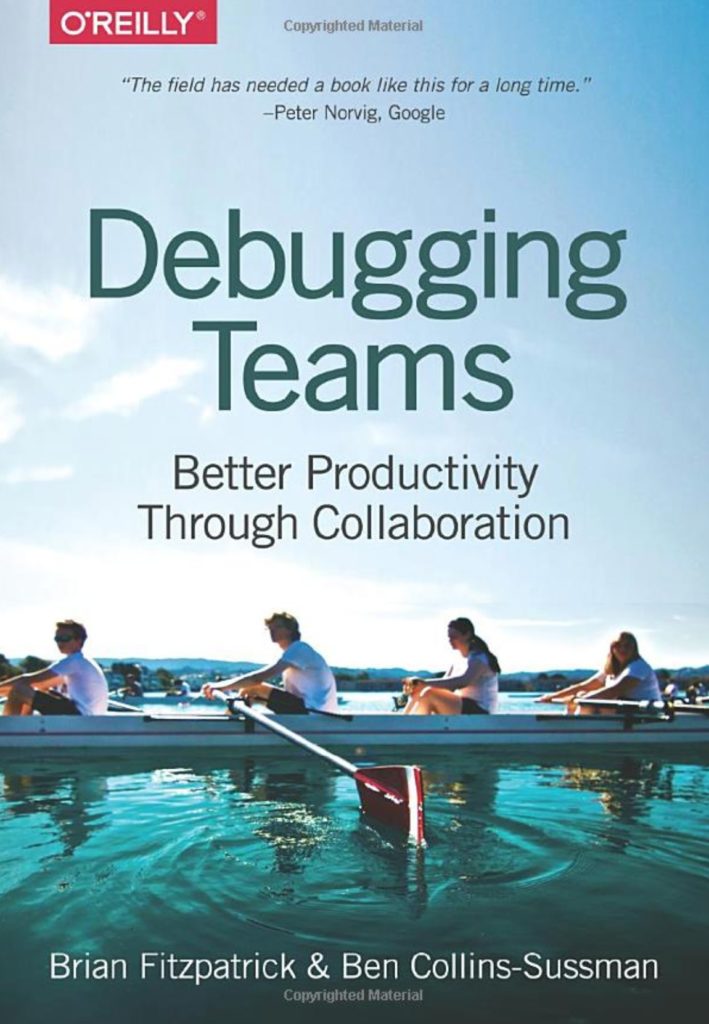Debugging Teams is a short, clean, and to the point read. It’s a great book to pick up, read a page or two & set down and ponder. Every section speaks lightly, yet bluntly about team culture & being a great team member.

Rating
(Higher is better, 5 is neutral)
- Would I recommend? 9 / 10
- Did I learn anything? 8 / 10
- Did I learn anything I can apply? 7 / 10
- High Information density? 8 / 10
- Would I re-read? 7/10
Buy Debugging Teams on Amazon
Debugging Teams Overview
Debugging Teams speaks honestly and cuts to the chase. It provides practical advise with how to work with (and around) bad culture and defines what good culture looks like.
It reminds us that good team culture starts with ourselves. We have to be humble to grow ourselves to be an example of what good culture is.
Debugging Teams sets that bar of what that good team culture should looks like and thusly what bad culture looks like.
Who should read Debugging Teams?
Pretty much everyone! Specifically leadership, managers, and junior to senior devs.
I consider this essential reading for any of team member as an introduction to thinking about team culture.
My main takeaways
Culture is important from day 1, bad culture from one teammate infects an entire team and pushes away good talent. It’s hard & nearly impossible to override one toxic teammate with many good ones, it just doesn’t work.
Therefor don’t tolerate having the Brilliant Jerk on the team. They aren’t worth it. They set bad culture and diminish the team around them.
Be the example of the culture you’d like to see, be humble, you likely have faults as well. We need to be aware of our own ego.
If you liked this book, next I’d recommend:
Going deeper on team culture: Elegant Problem
Going deeper on leading with positive impact: Multipliers
Going deeper on project management: Waltzing with Bears
Going deeper on managing a team: Become an Effective Software Engineering Manager
Favorite Quotes
“Software development is a team sport”
“If you spend all your time working along, you’re increasing the risk of failure and cheating your potential for growth”
“Relationships always outlast projects”
“Understand the difference between constructive criticism of someones’ creative output and flat-out assaults against someone’s character. […] If you truly respect someone, you’ll be motivated to choose tactful, helpful phrasing.”
“Your self-worth shouldn’t be connected to the code you write – or any project you build.”
“When you stop learning, you get bored. It’s really easy to get addicted to being a leading player; but only by giving up some ego will you ever change directions and get exposed to new things. Be willing to learn as much as teach.”
“Admitting you’ve made a mistake […] is a way to increase your status over the long run.”
“A ‘strong culture’ is one that is open to change that improves it, yet is resistant to radical change that harms it”
pg 31
